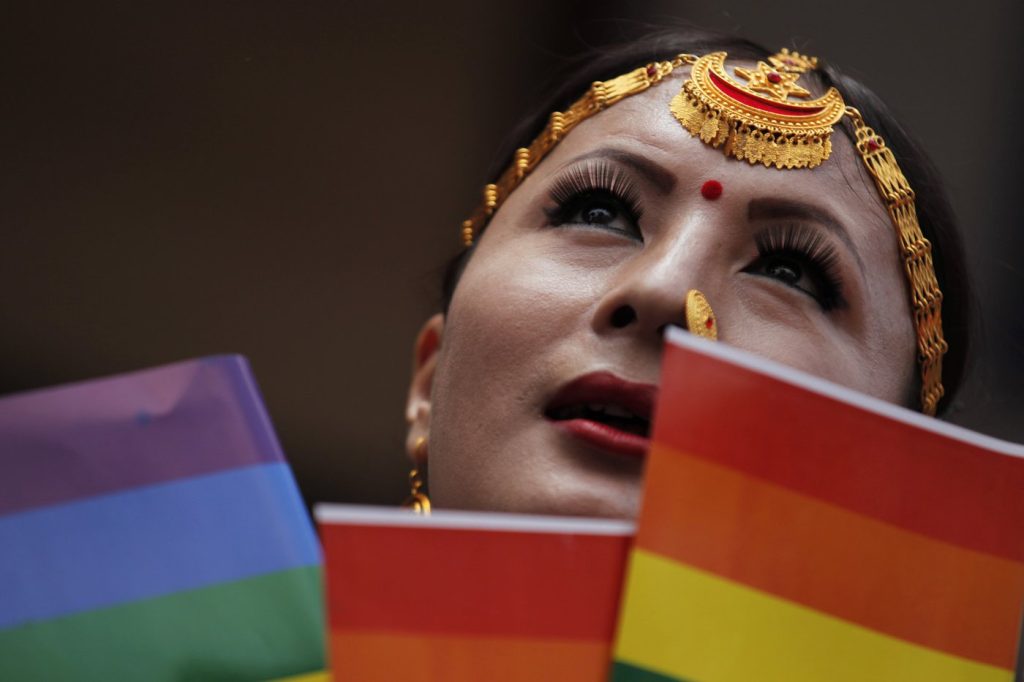KATHMANDU, Nepal (AP) – The Parichaya Samaj center, which has historically been a stronghold for LGBTQ+ rights advocacy and support in Nepal, now stands with its metal gates padlocked. A sign hung at its entryway informs that they are no longer able to offer assistance, leaving the staff and volunteers absent. This closure marks a significant setback for the LGBTQ+ community in Nepal, especially after a series of funding withdrawals initiated during the administration of former U.S. President Donald Trump.
The U.S. Agency for International Development (USAID) played an essential role in providing humanitarian aid, particularly for initiatives supporting LGBTQ+ rights, HIV prevention, and safe-sex counseling. With the USAID office in Nepal now closed, many help centers supporting the queer community have also shuttered due to a lack of funds, leaving thousands without crucial support. “It is a big crisis,” expressed Sunil Babu Pant, an openly gay former parliamentarian and a prominent LGBTQ+ campaigner, highlighting the absence of counseling and support services that members of the community relied upon.
Nepal has made notable strides toward LGBTQ+ rights in recent years, including becoming one of Asia’s first countries to permit same-sex marriage. The 2015 constitution ensures no discrimination based on sexual orientation. As a significant donor to LGBTQ+ rights initiatives, the funds from the U.S. facilitated the operations of various centers and clinics that provided services like free condom distribution, HIV screenings, and follow-up treatment for infected individuals. Now, as these resources dwindle, the gains made by the LGBTQ+ community face serious threats.
Babu Dumi Rai, a former worker at a help center in Kathmandu, expressed concern over the potential rise in HIV infections due to the absence of support services. "In our community, people are hesitant to buy condoms, and many are unaware of the necessity to use them,” Rai pointed out, indicating that the closure of these centers significantly heightens the risk of new infections.
It is estimated that between 15,000 and 20,000 individuals living with HIV in Nepal identify as part of the LGBTQ+ community. Dinesh Chaudhury, another advocate working with help centers, noted that many are struggling to find alternative medical support. While government hospitals have some resources, members of the LGBTQ+ community often feel uncomfortable due to the treatment they receive there. "It is uncertain where they can go to get help in the coming days,” Chaudhury lamented.
For transgender sex workers, the consequences of these closures are even more acute. Simple Lama, a transgender sex worker, remarked that accessing medical help and obtaining items like condoms and lubricants has become increasingly difficult. “It was easier and safer to go to the centers and clinics for medical help and consultations,” Lama noted, emphasizing the hostility and discomfort experienced in regular hospitals.
Sex work is illegal in Nepal, putting sex workers at constant risk of harassment from authorities. However, some transgender sex workers have historically been tolerated by the police due to advocacy efforts aimed at reducing the harassment of community members. Unfortunately, as job opportunities dwindle due to the closure of advocacy centers, more LGBTQ+ individuals are turning to sex work for survival. “Quite a few of them have started doing sex work,” Pant revealed, pointing out that economic scarcity forces many trans and third-gender individuals into precarious situations.










